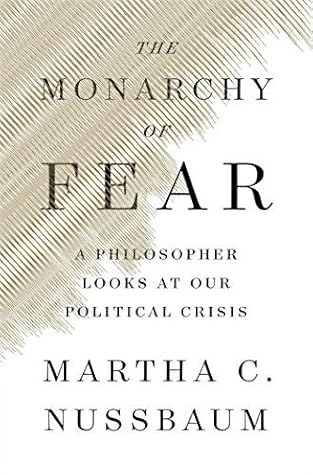More on this book
Community
Kindle Notes & Highlights
Read between
August 13 - August 13, 2020
He said he was like a gadfly on the back of the democracy, which he compared to a “noble but sluggish horse”: the sting of philosophical questioning was supposed to wake democracy up so that it could conduct its business better.
The Love he demanded was a combination of respect for humanity with good will and hope: we treat people as people who will listen and think, and who ultimately may join with us in building something beautiful. Philosophy, as I shall practice it here, shares that project and that hope.
This wish for payback arises in all sorts of situations. Take divorce. Betrayed spouses often feel entitled to seek punitive divorce settlements and child custody arrangements, as if that somehow were their due, and as if punitive payback somehow restored the balance of power or rescued their damaged dignity. But in real life the function of payback is usually far less benign. Two people become locked in a struggle for pain, focused on the past, and often inflicting great collateral damage on children, friends, and family. In the end, the betrayer may get “his comeuppance,” but what does that
...more
Still, let’s hold on to Aristotle’s idea, for it does cover surprisingly many cases of anger, as empirical researchers emphasize.
The status idea is important because it is the one case, I believe, where payback gives you what you want. If what you are focused on is not the murder, or theft, or rape itself, but only the way it has affected your relative status in the world, then by pushing the wrongdoer relatively lower, you really do push yourself relatively higher. And if relative status is all you care about, you needn’t be worried that the underlying harms caused by the wrongful act (murder, rape, theft) have not been made good. If you’re thinking only about relative status, then, payback sort of makes sense. Many
...more
Dignity, unlike reputation, is equal and inalienable.13
Taking the measure of love fully means suffering. So, the solution that wipes out both fear and anger with one stroke is not one we should accept. Keeping love means keeping a lot of fear.
There is a better alternative. Aeschylus knew it, and King both knew and lived it. Making a future of justice and well-being is hard. It requires self-examination, personal risk, searching critical arguments, and uncertain initiatives to make common cause with opponents—in a spirit of hope and what we could call rational faith.


